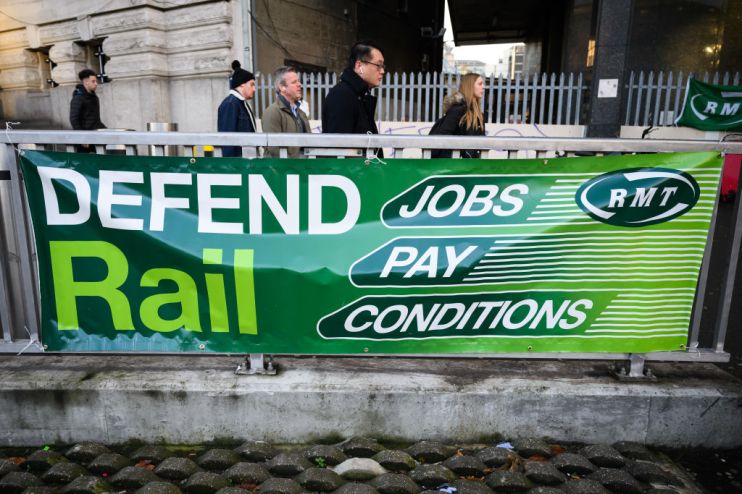No end in sight: Nearly 4m working days lost to strikes in past year as negotiations falter

Talks between government and unions to resolve ongoing industrial disputes have repeatedly faltered, despite the UK losing nearly 4m working days to strikes over the past year.
According to new research from the Resolution Foundation think tank, 3.9m working days have been lost to industrial action, higher than at any point since the 1980s.
Highly unionised sectors accounted for the lion’s share of strikes, with workers in health, education, rail and the postal service responsible for 96 per cent of all walkouts.
Despite the forty-year high, government and unions have fired accusations at the other in recent months for failing to come to the negotiating table, and resolutions in many sectors still look a long way off.
Both the RMT and ASLEF’s general secretaries said ahead of recent walkouts that they had not met or spoken with the government for extended periods, despite repeat disruption this year.
On Friday, the RMT announced a wave of fresh action to hit the last week of August, with 20,000 members set to walk out across the railways.
Junior doctors are currently engaged in a four-day walkout. Ahead of the action, Robert Laurenson, co-chair of the the British Medical Association’s junior doctors committee, said the dispute would only end should Rishi Sunak come to the negotiating table.
“The Prime Minister has told us that talks are over. But it is not for Rishi Sunak to decide that negotiations are over before he has even stepped in the room,” he said.
Meanwhile, health secretary Steve Barclay accused junior doctors in June of “walking away” from talks over pay and conditions.
According to the think tank, high inflation resulted in workers’ average real terms pay dipping by 4.1 per cent across the board in the quarter to May, when compared with 2021.
But for public sector workers, real terms pay fell as high as 9.2 per cent, with an even steeper 9.8 per cent drop for staff in health and social care.
However, the Foundation did note some exceptions, with “highly unionised transport workers” having seen no average real pay hit, “whereas un-unionised personal service workers haven’t gone on strike but have seen big pay cuts”.
Nye Cominetti, senior economist at the Resolution Foundation, said that while recent strikes show public-sector pay had “fallen severely”, the inflation-driven pay squeeze should be “understood as part of a broader pattern of poor pay growth across both the public and private sectors, and falling pay satisfaction among public sector workers”.
Vacancies have also risen, the think tank found, with those in health, education and public administration 33 per cent higher in March than in December 2019, compared with 23 per cent higher over the rest of the economy.
“Going forwards, the government will need to balance fiscal caution with the need to provide a level of pay for public sector workers that reflects the very real difficulties faced by workers in these sectors, and ensures that vacancies in these sectors continue to be filled,” Cominetti said.
“In addition, there should also be a renewed focus on improving pay and working conditions for workers in essential sectors like social care, that are largely not unionised, but which are still experiencing the effects of job stresses and pay squeezes.”
The government was approached for comment.